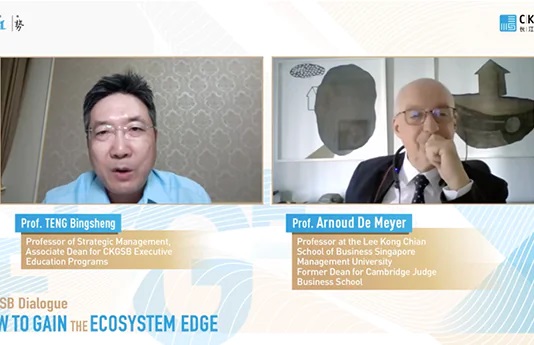A look behind the bull market in corporate storytelling
Once upon a time, there was a global boom in corporate storytelling. Today, nearly 10,000 people on LinkedIn include storyteller in their job title, including people who work for specialized storytelling consultancies. In this four-part series, we will look first at the case for storytelling as a sales and management tool, and why in this high-tech age, the low-tech story is still the killer app of persuasion; second, at the ingredients that go into a successful management or sales story; third, how better storytelling can help you in your own career; and finally, how people are using storytelling analysis as a way to understand organizations better.
Paul Smith’s epiphany about the power of narrative came after 15 years in the corporate world. “In watching the leaders that I admired the most, that I wanted to work for, that I wanted to be like when I grew up in the company, I finally realized that they had something in common and that was that they had this gift of being able to tell compelling stories,” he says.
Nobody had taught business storytelling at Wharton, Arthur Andersen, or at his last corporate post at Procter & Gamble. So the Cincinnati-based market researcher set out to teach himself. He read dozens of books on the structure of stories, and began interviewing executives who were good storytellers. “I ended up reverse engineering my way into what made an effective story and what didn’t,” he says.
Seven years later, Smith has interviewed more than 300 executives from 25 countries, and gathered a trove of thousands of stories. He has also parlayed his knowledge of storytelling into three books—Lead with a Story, Sell with a Story, and Parenting with a Story – and teaches managers at dozens of companies how to improve their leadership success through better storytelling.
As remarkable as his evolution from market researcher to story guru might sound, Smith’s tale is not unique. Today, a number of consultants offer services that teach storytelling to executives or help them develop stories for internal or external consumption.
Why all the interest? “The world has gotten more complex,” offers Laurence Prusak, a Boston-based knowledge management consultant and co-author of Storytelling in Organizations (2004). “There’s more people, there’s more means of communication, there’s more complex products, and as it gets more complex, humans’ brains don’t evolve, not yet, so they look for ways to comprehend and make sense of things, and we’re sure geared to do that through stories.”
Bees dance and whales sing, but human beings are the preeminent storytelling animal. As the novelist A. S. Byatt put it, “Narration is as much a part of human nature as breath and the circulation of blood.”
Smith and other narrative experts say there are several reasons storytelling works so well:
Stories can fulfill several roles for an organization. Founders’ stories, for instance, can be especially useful in giving people a sense of their company’s identity and in shaping the company’s culture. Hewlett-Packard’s culture, for instance, centered on stories told about the founders, Bill Hewlett and David Packard. “Those stories were as powerful as religious stories. I can hear them even now,” says Prusak.
Stories can be a good way to disseminate knowledge too. As a senior consultant in knowledge management to NASA (National Aeronautics and Space Agency) for 15 years, Prusak recalls trying many different ways to circulate information about innovations throughout its 13 major laboratories until his team hit on the day of teaching storytelling.
“We tried writing reports and sending emails and giving PowerPoint presentations. None of this really was effective, so we decided to teach the innovators, who are engineers and not prone to do this, how to tell stories about what they did, and I don’t mean silly anecdotes, I mean, put the whole innovation in a structured narrative form, not PowerPoint, not axioms of composition, but a narrative,” Prusak says.
“Once they realized their audience really resonated with a narrative rather than the alternative, they jumped to it,” Prusak recalls. “Some [speakers] were natural, some weren’t, but there’s a simple structure to all stories really, and once they understood that … I banned PowerPoint. You could show pictures for complex stuff, but you had to talk without a screen. It was a huge success in terms of spreading knowledge of innovation that was really useful for the other centers to know about.”
In fact, stories can even drive out rational argument. Prusak argues, for example, that stories played an outsize role in the most recent US presidential election. “Donald Trump told a story: America used to be great, we’re going to make it great again, and things will be wonderful. That is a story. It’s a future-tense story, but it’s a story. Hillary Clinton, who probably has 40 IQ points on Trump, didn’t have the insight to do that,” he says.
Despite the capacity of stories to mislead, people have argued that our love of narrative is a precondition of civilized life. The late psychologist and narrative theorist Jerome Bruner argued that it was “the conventionalization of narrative that converts individual experience into collective coin which can be circulated, as it were, on a base wider than a merely interpersonal one. Being able to read another’s mind need depend no longer on sharing some narrow ecological or interpersonal niche but, rather, on a common fund of myth, folktale, ‘common sense’.”
Next: How do you tell a good story?




















